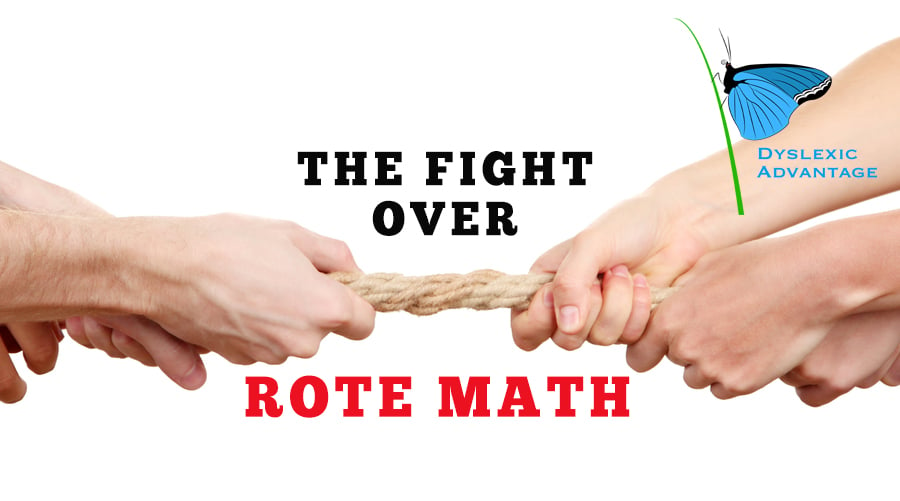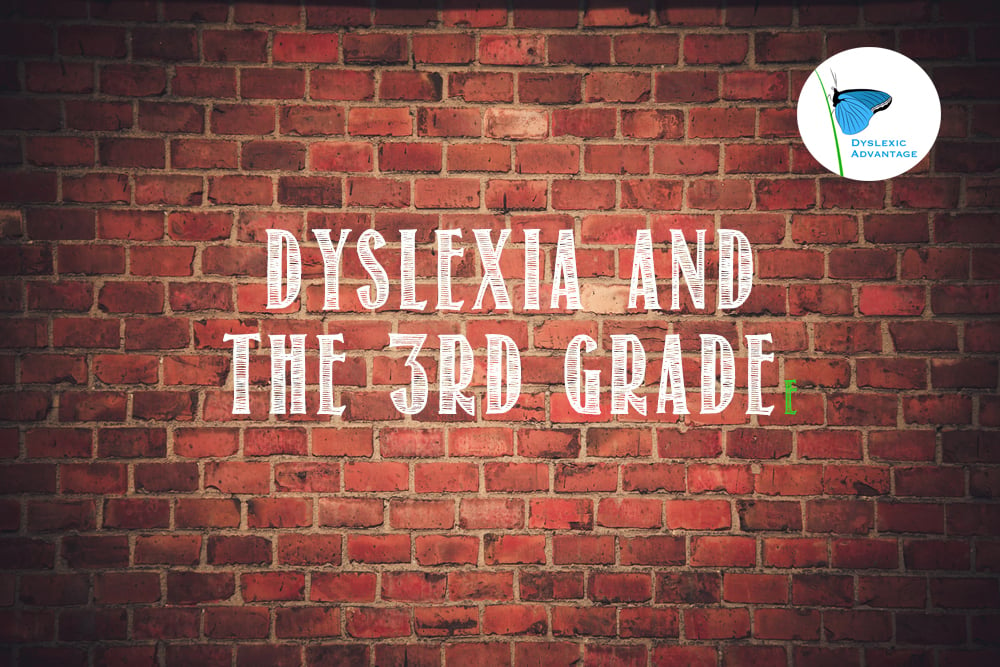Once you learn how to recognize the ‘schwa’, you’ll start recognizing them everywhere! In linguistics, the schwa sound is represented by an upside-down ‘e’ and the mouth position is a lot like the ‘uh’ sound in ‘butter’. It contributes to lots of misspellings in dyslexic students (and actually non-dyslexic students too) so recognizing the patterns can significantly improve all-round spelling performance. STRATEGY 1: EXAGGERATE / MISPRONOUNCE THE SCHWA One surprisingly easy strategy is to exaggerate and deliberately mispronounce a word in order to remember the correct spelling. For instance, the-thee reminds you that the schwa is spelled with an ‘e’. Look at the following 3 objects: monitor, computer, and calendar. To remember -or, -er, and -ar, a student can pronounce monitor as mon-i-TOR, exaggerating the […]
Memory: Why Drill Can Kill – and What to Do Instead [Premium]
It would almost seem without question that repetition should be helpful for learning, but researchers have found that if repetitions are too much and too long (longer than 10 seconds in one paradigm), further repetition caused poorer memory and word retrieval rather than better! From one of the papers below: “Both Experiments 1 and 2 demonstrated a striking and clear violation of the memory benefits typically associated with repetition. Specifically, increasing the rehearsal time of a word did not yield a straightforward monotonic increase in performance on a later free association test; rather, it led to a nonmonotonic effect, with performance initially increasing, but then declining with longer repetition durations.” The reason for this effect is currently being studied, but the researchers speculated that the increased forgetting […]
The Fight over Rote Math
If you think you've been hearing conflicting information about rote math in the news or from schools, you're absolutely right. The fight is spilling over to educational policymakers and makers of standardized tests such as the College Board. For dyslexic and...
Research: Classroom Culture Matters – Effects on Reading Performance [Premium]
In the latest issue of the Journal of Learning Disabilities, researchers from Harvard and Greece found that classroom culture, and in particular LD students’ perceptions of their classrooms motivational framework had sudden, significant, and unpredictable effects on reading performance and students’ emotional state. From the authors: “The purpose of the present study was to evaluate the proposition that a classroom’s motivation discourse exerts significant influences over students’ achievement in reading.” The two conditions that researchers compared were: #1. Mastery (internal standard) – “In our class trying hard is important” #2. Performance (external standard) – “In our class, getting good grades is the main goal.” Their brief conclusions: “…the results confirmed the research hypotheses concerning the role of mastery and performance goals. The form (mastery) had a […]
Dyslexia and the Third Grade Wall
If you're not aware if the '3rd Grade Wall', you can get blind-sided. A recurring theme that we hear about when we interview accomplished dyslexic men and women is the trouble and failure (often grade retention) that happens in the 3rd grade. Why? What's the big deal...
Surviving Parent Teacher Conferences [Premium]
Parent-Teaching Conferences can be stressful for both parents and teachers. Keep your eye on the big picture, think strategically, and work toward a positive year for your student in the classroom. Often the amount of time you have with the teacher is quite short because of the total number of students involved. As a result, plan on showing up to see how the beginning of the year is progressing and focus on finding solutions if your students is lagging behind or having difficulties. If you’ve purchase Dyslexia, Dysgraphia, or Dyscalculia Teacher cards, now is a good time to use them. Quick Tips for Parent Teacher Conferences If Your Student is Dyslexic: Make a Positive First Impression – This may be the first time your meeting this teacher and she […]
How to Read to Kids with Dyslexia – Reading As a Conversation [Premium]
There are many good ways to read to children with dyslexia. In this post, we wanted to talk share an approach that some have called “dialogic” or like a dialogue. A dialogue is a back and forth conversation, and that is exactly how this style of reading goes. Rather than having a parent or teacher read aloud with a child listening, in dialogic reading, the adult helps the child tell the story. The acronym for this method is PEER: 1. Prompt a child to say something about the book. 2. Evaluate her response. 3. Expand the response by rephrasing and adding more detail, and 4. Repeat the prompt to make sure the child learned. Except for the first reading of the book, PEER sequences should […]
Math Strategies for Arithmetic – Number Flexibility [Premium]
“Everybody could rock through their multiplication tables and I could do my ones and my twos and my zeros and my tens, and that was about it.” – Jack Laws, naturalist I’ve been enjoying a book, Mathematical Mindsets written by Stanford Professor Jo Boaler. It’s great stuff. She’ll help a lot of dyslexic students if they adopt her approaches to teaching math. The first concept is deceptively simple, but resonates with me after seeing over a decade of dyslexic students work math problems in our clinic. There is a high degree of overlap between dyscalculia and dyslexia although there is also a significant number of dyslexics who are solid or even outstanding mathematicians. The weak ones almost invariably struggle with basic math facts and require […]
Choosing the Right Reading Level Books for Students with Dyslexia [Premium]
It’s often told to parents that a “Five Finger Rule” can help you choose whether a book is at the right reading level for a student. The rule states that if a student misses five or more words, it may be too hard, no words and it might be too easy, and three words and it’s ‘just right’. The problem for dyslexic students is that the “Five Finger Rule” may prevent them accessing print information at their intellectual level and if reading aloud is the guide for the rule, then it’s possible they may never be granted access to higher level books even if they are university professors! In fact, pioneering work by Rosalie Fink (see research paper below for Premium members), showed that accomplished […]
How Dyslexic MIND Strengths Integrate with Multiple Intelligences [Premium]
In our book, The Dyslexic Advantage, we spoke about the 4 MIND strengths common in adult dyslexics: M for Material Reasoning, I for Interdisciplinary Reasoning, N for Narrative Reasoning, and D from Dynamic Reasoning. These skill clusters and talent sets had parallels in brain systems and processes as well as careers, domains of expertise, and areas of innovation. Multiple Intelligences is a concept that was introduced by Howard Gardner of Harvard to identify specific modalities that went beyond a single intelligence or general ability. The seven he initially characterized were: musical-rhythmic, visual-spatial, verbal-linguistic, logical mathematical, bodily, kinesthetic, interpersonal, and intrapersonal. The ones he considered adding later were naturalistic (able to classify natural forms, ecological ‘receptiveness’), existential or spiritual, and teaching -pedagogical in telligence. Somewhat related […]
Teaching Chemistry to Students with Dyslexia [Premium]
Although High School Chemistry is required for many of the top 4 year liberal arts colleges and college Chemistry is a necessary requirement for many majors and careers that many dyslexic students excel in like engineering or medicine, there is a surprising lack of resources available to students having their first encounter with chemistry – and that may make things tricky, especially if they’re also juggling a full load of classes. For Premium subscribers, here are a few tips and strategies for surviving and even thriving at chemistry. Chemistry can be a field that dyslexics do extremely well at because they can visualize, rotating molecules in space, and picture their interactions and energy transformations. The main challenge is often at the beginning – when all the […]
[Premium] What to Do If a Reading Curriculum Doesn’t Work
It happens to everybody. You research a curriculum thoroughly or it gets through several levels of a review and then you put it into action and… it just doesn’t connect. What do you do? There are several common reasons why a curriculum doesn’t connect with a particular student – and so some trial and error and modification need to take place. The most common reasons that certain curricula fail for a particular student include: 1. Going Too Fast Because there can be difficulty registering information accurately (sounds, letters, words), a student may need to slow the pace down considerably if the lessons aren’t sinking in. It may seem counterintuitive if you feel a student is slipping farther behind, but reducing work and simplifying […]

![STRATEGIES FOR THE MOST COMMON SPELLING MISTAKES: THE SCHWA [Premium]](https://www.dyslexicadvantage.org/wp-content/uploads/2017/02/Screen-Shot-2019-09-03-at-2.08.42-PM.jpg)
![Memory: Why Drill Can Kill – and What to Do Instead [Premium]](https://www.dyslexicadvantage.org/wp-content/uploads/2016/11/memory-graphic-our-shutterstock-scaled.jpg)

![Research: Classroom Culture Matters – Effects on Reading Performance [Premium]](https://www.dyslexicadvantage.org/wp-content/uploads/2016/11/our-shutterstock-class.jpg)

![Surviving Parent Teacher Conferences [Premium]](https://www.dyslexicadvantage.org/wp-content/uploads/2016/10/parent-teacher-conferences.jpg)
![How to Read to Kids with Dyslexia – Reading As a Conversation [Premium]](https://www.dyslexicadvantage.org/wp-content/uploads/2016/10/mom-reading.jpg)
![Math Strategies for Arithmetic – Number Flexibility [Premium]](https://www.dyslexicadvantage.org/wp-content/uploads/2016/10/mental-math.jpg)
![Choosing the Right Reading Level Books for Students with Dyslexia [Premium]](https://www.dyslexicadvantage.org/wp-content/uploads/2016/10/reading-bulb-our-shutterstock-scaled.jpg)
![How Dyslexic MIND Strengths Integrate with Multiple Intelligences [Premium]](https://www.dyslexicadvantage.org/wp-content/uploads/2016/09/our-shutterstock-color-bulb.jpg)
![Teaching Chemistry to Students with Dyslexia [Premium]](https://www.dyslexicadvantage.org/wp-content/uploads/2016/09/Screen-Shot-2019-09-09-at-10.55.40-AM.jpg)
![[Premium] What to Do If a Reading Curriculum Doesn’t Work](https://www.dyslexicadvantage.org/wp-content/uploads/2016/09/our-shutterstock-puzzle.jpg)













